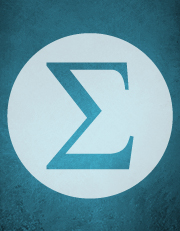Journals from the Forum of Mathematics
-

- Journal
Forum of Mathematics, Pi
-

- Journal
Forum of Mathematics, Sigma
Forum of Mathematics, Pi is the open access alternative to the leading generalist mathematics journals and are of real interest to a broad cross-section of all mathematicians. Papers published are of the highest quality.
Forum of Mathematics, Sigma is the open access alternative to the leading specialist mathematics journals. Editorial decisions are made by dedicated clusters of editors concentrated in the following areas: foundations of mathematics, discrete mathematics, algebra, number theory, algebraic and complex geometry, differential geometry and geometric analysis, topology, analysis, probability, differential equations, computational mathematics, applied analysis, mathematical physics, and theoretical computer science. This classification exists to aid the peer review process. Contributions which do not neatly fit within these categories are still welcome.
What are Forum of Mathematics, Pi and Forum of Mathematics, Sigma?
Forum of Mathematics, Pi and Forum of Mathematics, Sigma together offer full open access publication combined with peer-review standards set by an international editorial board of the highest calibre, all backed by Cambridge University Press and our commitment to quality. The Forum of Mathematics was established in order to offer the community an open access journal outlet of the highest quality as a genuine and sustainable alternative to the journals currently owned by the leading commercial publishers. We see this part of our commitment to support the dissemination of scholarly knowledge.
Strong research papers from all parts of pure mathematics and related areas are welcomed.
All submitted articles undergo single-blind peer-review and benefit from the full functionality associated with reputable journal publishing: copyediting, typesetting, reference linking, usage statistics, etc. The decision on whether to accept articles is made solely by the Editors in complete independence from Cambridge University Press.
What is Forum of Mathematics, Pi?
Forum of Mathematics, Pi is the open access alternative to the leading generalist mathematics journals and is of real interest to a broad cross-section of all mathematicians. Papers published are of the highest quality.
What is Forum of Mathematics, Sigma?
Forum of Mathematics, Sigma is the open access alternative to the leading specialist mathematics journals. Editorial decisions are made by dedicated clusters of editors concentrated in the following areas:
- Algebra
- Algebraic and Complex Geometry
- Analysis
- Applied Analysis
- Computational Mathematics
- Differential Equations
- Differential Geometry and Geometric Analysis
- Discrete Mathematics
- Dynamics
- Foundations
- Mathematical Physics
- Number Theory
- Probability
- Theoretical Computer Science
- Topology
This classification exists to aid the peer review process. Contributions that do not fit neatly within these categories are still welcome.
How do I submit to Pi and Sigma?
Manuscripts should be submitted via the relevant website below:
http://cup.msp.org/submit_new....
http://cup.msp.org/submit_new....
If you are unable to submit your paper via the above websites, please submit as an email attachment to fom@cambridge.org
If you experience any problems during the submission process, please contact the editorial office at fom@cambridge.org
Submission of a paper is taken to imply that it has not been previously published and that it is not being considered for publication elsewhere.
If I submit a paper to Pi and it is not accepted, will I be able to submit it to Sigma?
If a paper is rejected from Pi on the grounds that its interest is more specialised, then you will be able to submit it to Sigma.
Are submitted articles peer-reviewed?
Yes, all submitted articles are peer-reviewed, and the decision to accept is made by the Editors independently of the publisher.
Are papers published in Pi and Sigma copyedited?
Yes, all papers published in Pi and Sigma are copyedited.
Are papers published in Pi and Sigma typeset?
Yes, all papers published in Pi and Sigma are typeset.
Open Access
Forum of Mathematics, Pi and Forum of Mathematics, Sigma are both Gold Open Access journals. Articles published in the journal are freely and permanently accessible online under Creative Commons licensing that allow anyone to access and redistribute the content and, depending upon the license, re-use and adapt the content with attribution.
More information about publishing Open Access can be found here: Publishing Open Access.
How do Pi and Sigma differ from arXiv?
Pi and Sigma are fully peer-reviewed journals. They offer all the functionality associated with modern journal publishing: copyediting, typesetting, reference linking, usage statistics, etc. As with arXiv, articles will be made freely available to all in perpetuity. We openly encourage authors to post their submissions to Pi and Sigma on arXiv, to maximise dissemination and visibility.
What is an article processing charge (APC)?
Article processing charges are fees paid to support Gold Open Access in cases where the costs of publication are not covered by other routes, such as institutional open access agreements or equity initiatives. The cost of an APC can be covered in various ways, including by funding bodies, institutions, and sometimes by the author. APCs are often waived for authors who do not have access to grant or institutional funding, to ensure that they do not present a barrier to publication.
Any payment request for an APC is only made after an article has been accepted for publication, and APCs are only applicable for content that is published Gold OA. In other cases, no APC is required.
Do I have to pay to publish in Pi and Sigma (Gold Open Access)?
The costs of publishing Gold Open Access can be covered in a number of ways. In some cases they may be covered by an article processing charge (APC), which will typically be paid by your funding body or academic institution. However multiple other funding routes for Gold OA are available, including open access agreements made between Cambridge and institutions, as well as APC waivers and discounts.
For full details of a particular journal’s funding options for Gold Open Access, please navigate to the ‘Information’ section of its homepage, and look under ‘Journal policies’ for ‘Open access options’.
How much is the article processing charge (APC)?
You can download our full list of APCs from our central APC page, or check an individual journal’s APC by navigating to the ‘Information’ section of its homepage, and looking under ‘Author instructions’ for ‘Fees and pricing’.
How can authors obtain funding to pay for an article processing charge (APC)? Are discounts or waivers available?
Please refer to Cambridge’s guidance on routes to covering open access publication costs for full details of APC funding options, waivers, and discounts.
For full details of a particular journal’s funding options for Gold Open Access, please navigate to the ‘Information’ section of its homepage, and look under ‘Journal policies’ for ‘Open access options’.
Licensing
Authors can choose to publish under the following Creative Commons licenses:
- CC-BY (Attribution)
- CC-BY-NC-SA (Attribution - Non-Commercial - Share Alike)
- CC-BY-NC-ND (Attribution - Non-Commercial - No Derivatives)
CC-BY is the default license but the others are available on request. For information on what each licence allows, please see this page on Creative Commons Licenses.
(Users can download, extract, store and index content for the purposes of text and data mining - see the Cambridge Core Terms of Use for more details).
Sharing
We recognise that sharing your article with colleagues and the wider community is a vital part of research. When you publish in the Forum of Mathematics journals, you are free to post the final published PDF (the Version of Record) on your own website or elsewhere, in keeping with the Creative Commons license you choose.
How are published papers cited?
A paper published in Pi or Sigma is cited as follows, for example:
Smith J S (2013). A general solution to all Hilbert problems Forum of Mathematics, Pi 1 e17
16 pages.
There are no issues, and accepted papers will be published online as soon as copyedited and typeset.




